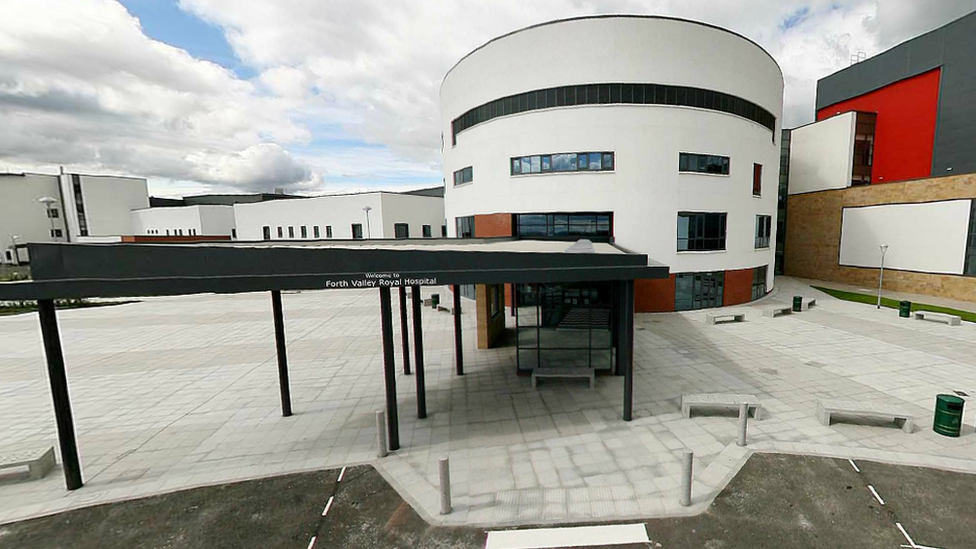NHS Forth Valley apologises for A&E waiting times
- Published

More than 1,100 A&E patients attended Forth Valley Royal Hospital in the first full week of October
NHS Forth Valley has apologised after only 41% of its Accident and Emergency patients were seen within four hours in the first full week of October.
National figures for the same period showed about 71% of A&E patients in Scotland were seen within four hours - the government target is 95%.
NHS Forth Valley said staff were doing "everything possible" to reduce delays.
Public Health Scotland, external said 1,167 people attended A&E in Forth Valley in the week up to 10 October.
A spokeswoman for the health board said that, along with other Scottish hospitals, it had been "exceptionally busy" over the past few weeks.
She said: "As a result, some patients may have to wait for longer periods of time in the emergency department until an inpatient bed becomes available.
"Staff are doing everything possible to reduce delays and we would like to take this opportunity to apologise to anyone who has experienced a longer wait to be seen at this very challenging time."
The spokeswoman said patients with more serious illnesses were being prioritised.
She added: "Many patients will undergo further diagnostic tests and start their treatment while they are waiting in the emergency department to be admitted to a ward."
'Not sustainable'
Scottish Liberal Democrat leader Alex Cole-Hamilton said the latest figures were "not sustainable" and called for an independent review.
He said: "Staff in health boards like Forth Valley cannot and should not be expected to work through another six months of this.
"The pressure, stress and anxiety are off the scale, because people are not receiving the timely treatment they should be able to expect."
A Scottish government spokeswoman said the Covid pandemic had "inevitably" affected attendance at Accident and Emergency departments.
She said: "To minimise pressures as much as possible this winter, we've recently announced £300m of measures to help increase NHS and social care capacity in our hospitals and reduce delayed discharges.
"In the meantime we will continue to work closely with those sites facing the greatest challenges to ensure rapid recovery plans are in place and are in contact daily."